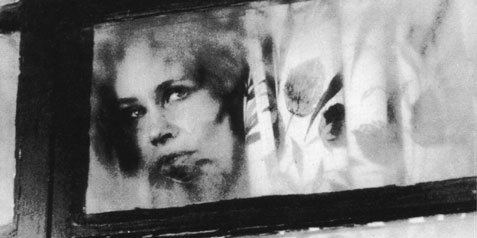Zambia / Sweden
, 108 min
Shown in 1981
CREDITS
- dir
-
Michael Raeburn
- prod
-
Mark Forstater
- scr
-
Michael Raeburn
- cam
-
Billie August, Fritz Schroder
- cast
-
Karen Black, John Thaw, John Kani, John Moulder-Brown, Patrick Mynhardt

This film version of Doris Lessing’s first novel is an auspicious debut for British director Michael Raeburn. The production was filmed in Zambia with an international cast, and it represents a successful merging of talents that brings distinction to the author’s incisive observations of racial tensions in South Africa. The story describes the difficulties of a young woman, Mary Turner, who finds that her existence in the African veldt, as a farmer’s wife, is eventually too intolerable for her to endure. She had grown up in poverty in a village in South Africa, and wanted to leave that life behind her. After a period of secretarial work in a small town, Mary marries Dick Turner out of a fear that spinsterhood is looming much too close, and follows him to an isolated farm. The rigors of the bush country with its loneliness, the neighbors with whom she cannot identify and the Black Africans whom she detests, all begin to work upon Mary’s frustrations. Dick, bewildered and solicitous, attempts to keep the doomed marriage from collapse, and tries to maintain the farm that he loves as much as the atmosphere of Africa and its people. The Grass Is Singing provides some excellent portrayals, particularly from Karen Black in the demanding, pivotal role of Mary. Here she proves that her dramatic capabilities have never been as fully exhibited before: she delineates the subtle, agonizing passage from self-pity to self-destruction. John Thaw, as Dick, not only complements the fury of his spouse, but recognizes the contretemps between British and White Afrikaans ideologies regarding the Black workers. It is, finally, the black houseboy, imaged by actor John Kani with symbolic dignity, who represents the African conscience, trying vainly to illuminate Mary’s heart of darkness.
—Albert Johnson
